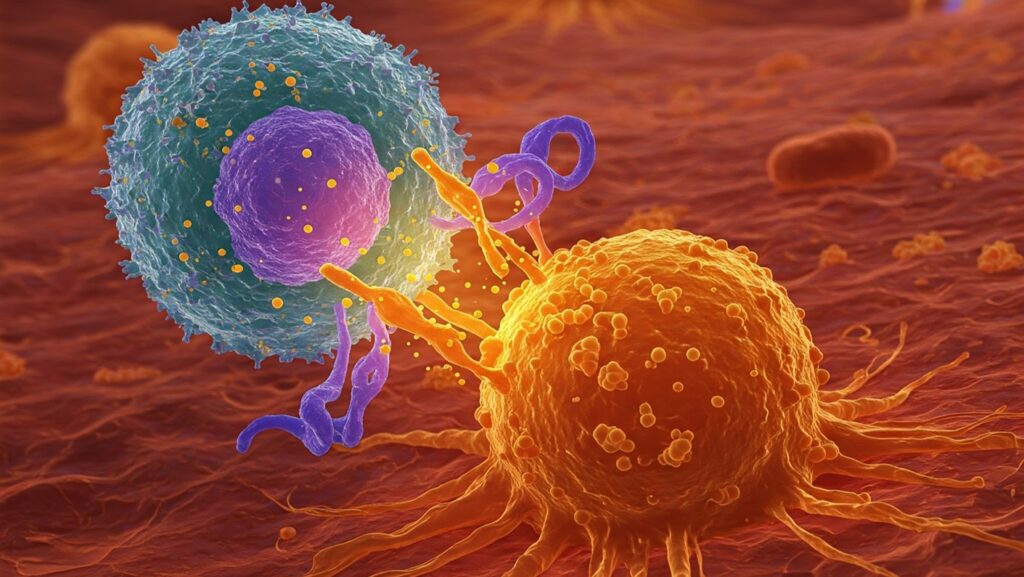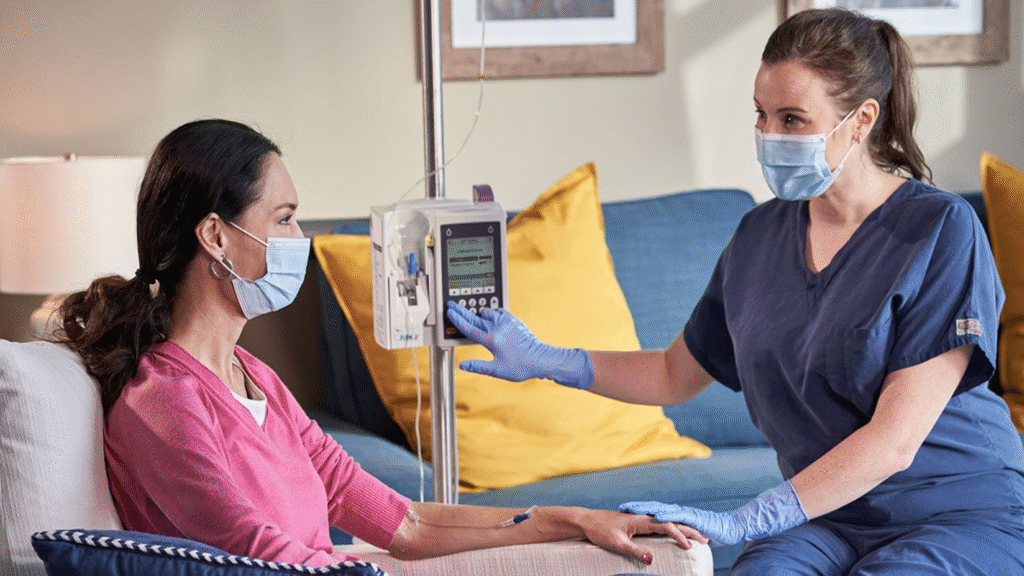PD-1/PD-L1 inhibitors have transformed cancer care, but their immune-activating mechanisms often lead to diverse side effects requiring tailored management. By categorizing these adverse events and pairing them with evidence-based strategies, patients and clinicians can better navigate treatment challenges. Below, we explore common and rare side effects, their clinical presentations, and practical management approaches, enriched with real-world patient experiences.

Cutaneous Reactions: From Rash to Pigment Changes
Symptoms and Incidence
Skin-related immune-related adverse events (irAEs) affect 30–40% of patients, with rash (14–17%), pruritus (10.61%), and vitiligo being most prevalent. These typically emerge within the first month of treatment, presenting as erythematous macules or papules on the trunk or extremities. Severe rashes occur in <2% of cases but significantly impact quality of life.
Management Strategies
- Mild cases (Grade 1–2): Topical corticosteroids (e.g., triamcinolone 0.1% cream) and emollients like ceramide-based moisturizers reduce inflammation and itching.
- Moderate cases (Grade 2): Add oral antihistamines (e.g., cetirizine 10 mg daily) for persistent pruritus.
- Severe cases (Grade 3–4): Temporarily halt immunotherapy and initiate prednisone 0.5–1 mg/kg/day, tapering over 4 weeks.
“Switching to fragrance-free detergent and lukewarm showers reduced my itching dramatically. My dermatologist recommended patting dry instead of rubbing—it made a surprising difference.” – Anna, melanoma survivor.
Gastrointestinal Toxicity: Diarrhea and Colitis
Symptoms and Incidence
Diarrhea affects 9.47% of patients, with colitis incidence varying by drug. Symptoms range from loose stools to severe abdominal pain and hematochezia, often distinguishable from chemotherapy-induced diarrhea by its inflammatory nature.
Management Strategies
- Grade 1 (≤4 stools/day): Maintain hydration; loperamide 4 mg initially, then 2 mg after each loose stool (max 16 mg/day).
- Grade 2 (4–6 stools/day): Add budesonide 9 mg/day; if unresolved in 72 hours, escalate to prednisone 1 mg/kg/day.
- Grade 3–4 (≥7 stools/day): Hospitalize for IV methylprednisolone 1-2 mg/kg/day and consider infliximab 5 mg/kg for steroid-refractory cases.
“I kept a food diary and noticed dairy worsened my diarrhea. Switching to lactose-free options helped, but my oncologist warned against long-term loperamide use without monitoring.” – Miguel, lung cancer patient.
Endocrine Dysfunction: Thyroid and Pituitary Disruption
Symptoms and Incidence
Hypothyroidism (6.07%) and hyperthyroidism (2.82%) are most common, often presenting with fatigue, weight changes, or heat intolerance. Hypophysitis (0.16%) may cause headaches or vision changes.
Management Strategies
- Hypothyroidism: Initiate levothyroxine (starting dose 1.6 mcg/kg/day), adjusting every 6 weeks based on TSH levels.
- Hyperthyroidism: Beta-blockers (e.g., propranolol 20–40 mg TID) for symptom control; monitor for progression to hypothyroidism.
- Adrenal insufficiency: Hydrocortisone 20 mg AM/10 mg PM; stress-dose steroids during infections.
“My endocrinologist taught me to check my pulse daily. A sudden increase signaled my thyroid was overactive before lab tests confirmed it.” – Sarah, breast cancer patient.
Fatigue: The Invisible Burden
Symptoms and Incidence
Fatigue affects 18.26% of patients, often described as an overwhelming exhaustion unrelieved by rest1. It correlates with inflammatory cytokines like IL-6 rather than anemia.
Management Strategies
- Non-pharmacologic: Structured activity programs (20-minute daily walks) improve energy through mitochondrial adaptation.
- Pharmacologic: Consider methylphenidate 5 mg BID for severe cases, though evidence remains limited.
- Nutritional: Iron supplementation if ferritin <100 ng/mL; vitamin D3 2000 IU/day for levels <30 ng/mL.
“Scheduling demanding tasks before my midday ‘crash’ and using a wheelchair for outings conserved energy for family time.” – James, melanoma survivor.

Rare but Severe Toxicities
1. Pneumonitis (3–8%)
Presentation: Dry cough, dyspnea, or hypoxia.
Management: Grade 2 – Prednisone 1 mg/kg/day with PFT monitoring; grade 3–4 – IV methylprednisolone 2–4 mg/kg/day + mycophenolate mofetil 1000 mg BID if unresponsive.
2. Myocarditis (0.27% with combo therapy)
Presentation: Chest pain, troponin elevation, arrhythmias.
Management: Immediate high-dose steroids + IVIG 2 g/kg over 2 days; temporary pacemaker for conduction blocks.
3. Neurological Toxicity (1–2%)
Presentation: Myasthenia gravis-like symptoms, encephalitis.
Management: IVIg 0.4 g/kg/day ×5 days for neuromuscular crises; plasma exchange if IVIg fails.
Proactive Monitoring and Patient Empowerment
Symptom Journals: Track onset, triggers, and interventions.
Multidisciplinary Teams: Involve dermatologists, endocrinologists, and cardiologists early.
Education: Provide wallet cards listing red-flag symptoms (e.g., chest pain, severe headache).
“My ‘immunotherapy passport’ included emergency contacts and current medications. It helped ER doctors act quickly when I developed colitis.” – Elena, bladder cancer patient.
By understanding these patterns and implementing proactive management, patients can optimize treatment continuity while mitigating risks. Always report new symptoms promptly—early intervention often prevents progression to severe toxicity
Disclaimer: This is for informational purposes only and is not intended as a substitute for professional medical advice, diagnosis, or treatment. Always seek the advice of your physician or other qualified healthcare provider with any questions you may have regarding a medical condition or treatment. Never disregard professional medical advice or delay in seeking it because of something you have read here. Individual experiences with PD-1/PD-L1 immunotherapies may vary, and management of side effects should always be guided by your healthcare team.
Source: JAMA Oncology; Frontiers in Immunology; Cancer Journal


